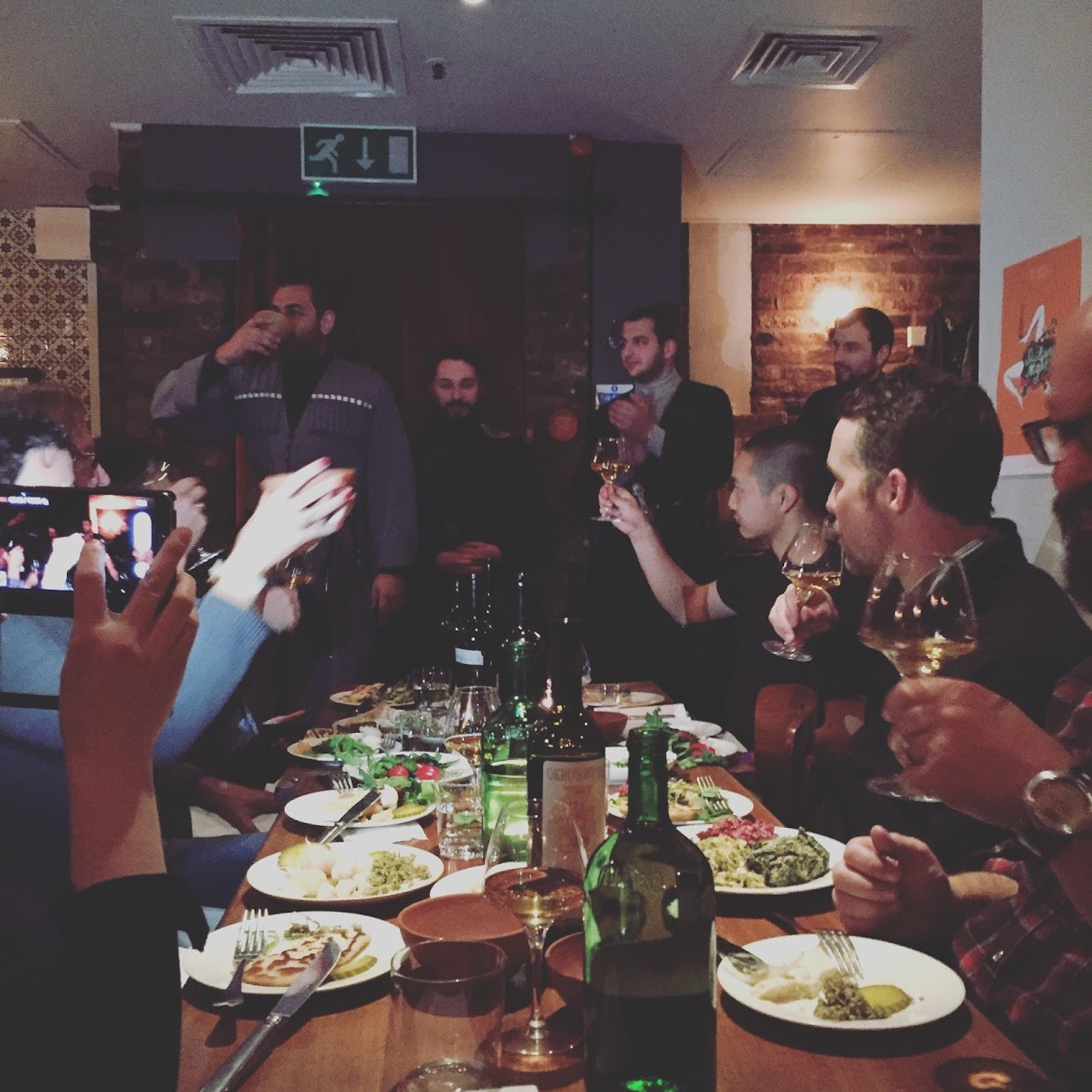A Georgian supra is so much more than eating and drinking. It is a form of nourishment for the soul, an affirmation of the civilising effect of the meal taken in company.

The ritual becomes the romance when observers of ceremony become participants in it.
Does the fact of being in Georgia and experiencing these things make the wine taste more special? There is a cliché to the effect that wine tastes better in its place of origin. Or is it the sheer points of difference that excite, such as the unusual composition of the wine, originating from strange (to us) often unpronounceable grape varieties, and made in a unique way in buried terracotta pots? Is it the oddness of the occasion – especially for those of us who tend to analyse a wine methodically – in that participating in a ritual makes us altogether less critical? Are unaccustomed feelings of gratitude and surprise seasoning our taste buds? When the qvevri is being opened, the producer often makes a little speech laced with solemnity, good humour, and best wishes. And we, witnesses to a form of wine baptism, drink in the symbolism of the moment. Our subsequent surprise and delight (if we have never been exposed to such an experience previously) may manifest in a gasp of pleasure, mouthing or uttering of “wow”, an impulse to laugh. Being in the company of others who are reacting in a similar way, further heightens our response.
When the qvevri is being opened, the producer often makes a little speech laced with solemnity, good humour, and best wishes. And we, witnesses to a form of wine baptism, drink in the symbolism of the moment.
The surprise response is a fleeting mental and physiological reaction. Our unfamiliarity with other cultural traditions will usually leave us open to this reaction. The next stage in the experience is to engage with what is happening. The supra, for example, in which the tamada takes us on an intellectual and emotional journey, involves a series of short speeches and toasts, during which our tongues (and inhibitions) are loosened over the course of the feast. The toasts are often in honour of us. Eating, drinking and laughing together is the ultimate social communion.
I wonder also if wine tastes better when you abandon reasoned responses and dive deep into the pleasure of the moment. At one particular supra, a friend and I were given cow horns filled to the brim with wine, with the injunction to link arms and drain the drink to its dregs. As the torrent of liquid gushed into my mouth and I swallowed, I experienced a brief glorious sensation of release. The wine literally did not touch my lips. It was liquid silk, filling me with the spirit of the feast. For not tasting it, the wine never tasted better. And never would.
Wine has been used for thousands of years as a libation when a liquid is ritually poured as an offering to a deity or spirit, or in memory of the dead. It was common in many religions of antiquity and continues to be offered in cultures today. In modern times, this ritual, in the form of the (usually secular) toast, punctuates a meal or bookends a solemn sentiment. In many cases, the toasts hasten drunkenness, in others they are to remind us that (before we become very drunk), we should celebrate the company of friends and give thanks for the occasion. The emotional honesty, the wit and warm humour, the clever use of metaphysical conceits is a universal language that we enjoy and respect. Ingesting the wine without analysis is the furlough from good taste that even professional tasters need at times. The words flow, the wine flows – fellow feeling is engendered.

